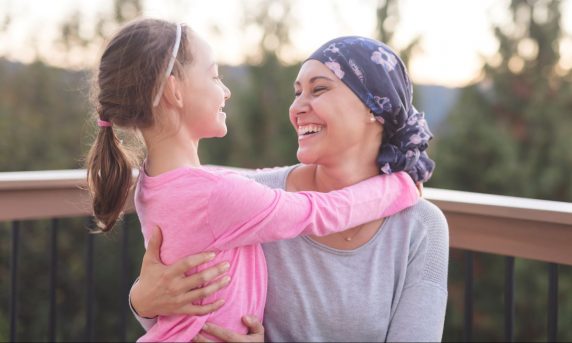If you’re preparing for cancer testing, we understand how overwhelming the process can feel — and how challenging it may be to absorb all the details.
To help, we spoke with Mojisola Araoye, MD, a hematologist and oncologist with Hartford HealthCare Cancer Institute.
She breaks down common types of cancer tests and shares ways to find the support you need.
Testing for different cancer types.
Depending on the type of cancer suspected, your healthcare team may recommend a combination of blood tests and imaging studies.
“Generally, most patients will have basic blood tests such as the Complete Blood Count (CBC), Complete Metabolic Panel (CMP), some tumor markers specific to the suspected cancer and CT scans,” explains Dr. Araoye. “Additional imaging may be required if more detailed information is needed.”
Following this initial workup, almost all patients will also require a biopsy for diagnosis.
> Related: What to Know About the New Ovarian Cancer Blood Test
Blood tests often begin the process.
While blood tests alone aren’t usually enough to confirm a cancer diagnosis, they provide valuable information your doctors need.
With Dr. Araoye’s guidance, here’s an overview of blood tests your healthcare team may order:
- Complete Blood Count (CBC): A CBC can provide important clues about hematologic cancers, such as leukemia, by revealing abnormalities in blood cell counts.
- Complete Metabolic Panel (CMP): This test provides information on electrolytes, kidney function, liver function and other vital markers that may indicate any issues.
- Liquid biopsy: This innovative test can help detect cancer cells by identifying circulating tumor DNA in the blood.
“There are also specific cancer-screening blood tests, such as the prostate-specific antigen (PSA),” adds Dr. Araoye. “When PSA levels are above the threshold, it can indicate a high suspicion of prostate cancer. This same blood test also monitors treatment response in patients.”
> Related: 6 Questions to Ask After a Cancer Diagnosis
Essential imaging for cancer diagnosis.
Imaging allows doctors to see inside your body, providing critical insights that help guide the diagnostic process.
Dr. Araoye shares more about the common imaging studies used:
- CT Scan: A CT scan with contrast of the chest, abdomen and pelvis can help locate the primary tumor and assess if the cancer has spread. Contrast enhances the images, providing more detailed views of potential problem areas.
- MRI: MRI creates detailed images of soft tissues and tumors, making it particularly useful when a CT scan doesn’t provide conclusive results. For early-stage cancers that can be surgically removed, MRI offers essential information for planning treatment.
- PET Scan: A PET scan uses a radioactive tracer to detect areas of high metabolic activity, often indicating cancer cells. Cancerous areas appear as bright spots on the scan, helping in both initial detection and assessment of cancer spread. PET scans are also valuable in monitoring for potential cancer recurrence.
“Additional cancer-specific imaging, such as mammograms and breast ultrasounds, are frequently used in diagnosing breast cancer,” adds Dr. Araoye.
The power of early detection.
Testing doesn’t just happen at diagnosis – you may also have screening tests for cancer prevention.
To determine the best approach for you, talk to your doctor about:
- Any family history of cancer.
- Age-appropriate cancer screenings.
- Additional risk factors that may affect your screening schedule.
“There are continuous advancements in oncology, and new technology is making early diagnosis more achievable,” says Dr. Araoye. “If your healthcare team recommends a test, make it a priority—it could make all the difference.”
Your team is here to support you.
Cancer is a challenging diagnosis that affects both patients and their loved ones. The numerous appointments, combined with the emotions surrounding a cancer diagnosis, can feel overwhelming.
“I encourage patients to have a close family member or friend by their side for support,” says Dr. Araoye. “A dedicated support team is also here to help manage the emotional and physical challenges of treatment and beyond, ensuring you’re not alone at any step along the way.”



